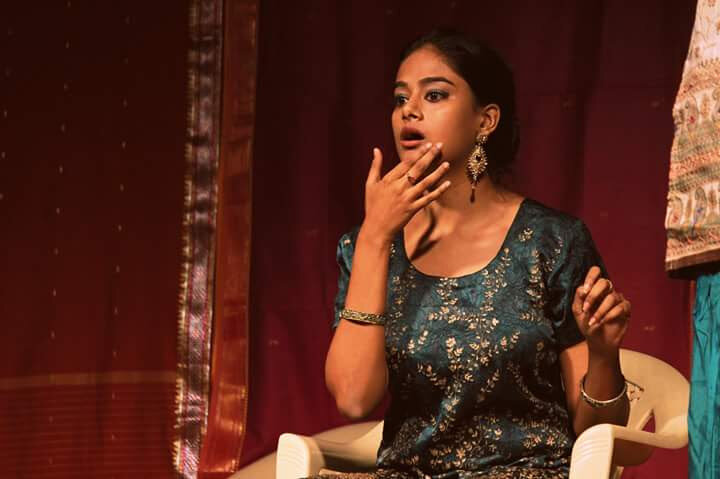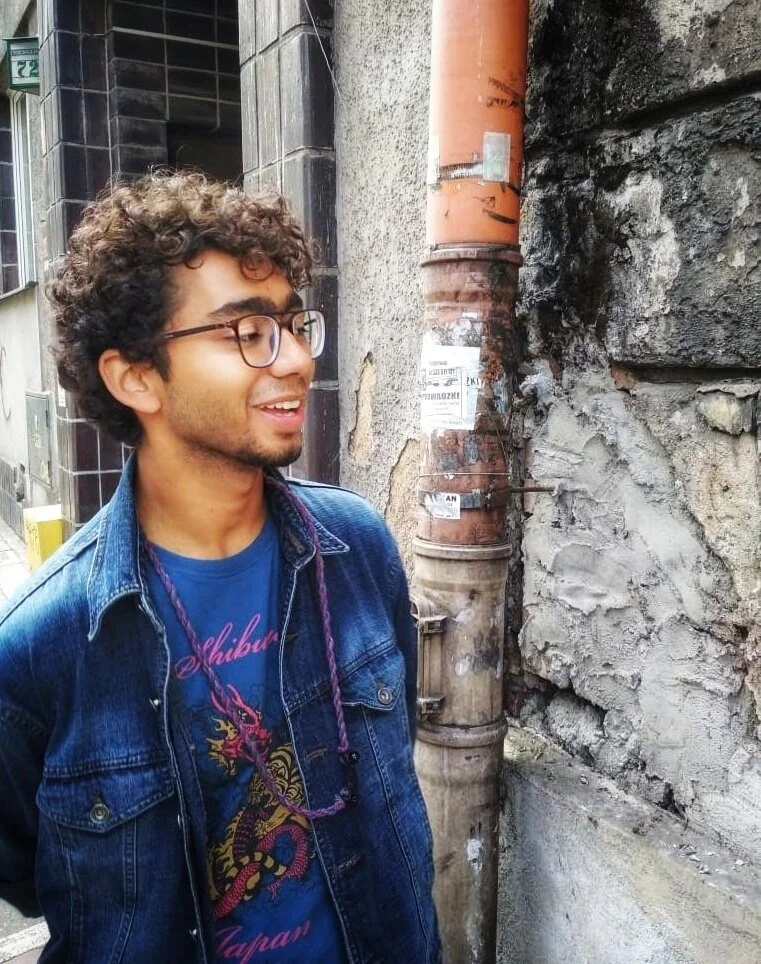Drama School Mumbai (DSM) 2021: Mithil Raj Goswami, Sharodiya Chowdhury and Hrishabh (Rishabh) Kanti.
The Drama School Mumbai (DSM) recipients of this year are, Mithil Raj Goswami, Sharodiya Chowdhury and Hrishabh (Rishabh) Kanti. .
Read more about each of their philosophies and beliefs of how theatre can inspire change.
Mithil Raj Goswami
Mithil’s venture in theatre started in 2014 doing street theatre performance in Manipal, Udupi, Mangalore and Bengaluru. After which, he started to work on collegiate stage productions. In the pursuit of shaping his process, he chose to train his body with world renowned Yakshagana Guru, Sanjeev Suvarna, in Yakshagana Kendra, Udupi.
Upon practicing this for a year, he participated in BeTaal’s adaptation of Akira Kurosawa’s Rashomon, stylizing it in Yakshagana and rooting it to Indian context with the language of delivery being Hindi, without compromising on the grammar of the form. Later, with the same company, he participated in Anumaan, an adaptation of a Yakshagana piece, Lankini Moksha. Anumaan, was unfortunately never performed. During this period, he delved more into the form and understanding why society needs theatre in the era of biased media houses.
According to him, theatre should tap the political and the human consciousness of the people in order to bring a behavioural shift in society, even in a minuscule way. He believes this shift or provocation can be done by merging the reality with an artistic or theatrical language and by the philosophy of Theatre of Cruelty by Antonin Artaud, where “cruelty” in Artaud’s thesis is sensory and it exists in the work capacity to shock and confront the audience to go beyond words and connect with emotions: to wake up the nerves and the heart. During a one on one discussion with DSM alumnus and faculty, Tushar Mathew, he was inspired by Tushar’s comparison of theatre to a sporting event, a player-spectator interaction after which the enthusiastic spectators convey the news to others about the happenings in the theatre so that others can come in with the same spirit to witness the succeeding shows of the play.
Mithil looks forward to continuing his education at DSM with the help of the Inlaks India Foundation.
Sharodiya Chowdhury
While Sharodiya graduated with a B.A.LL.B (Hons) from Narsee Monjee’s Kirit P. Mehta’s School of Law, Mumbai in 2020, she has always found comfort in artistic pursuits.
As a child, she was introduced to Theatre by Ramnath Tharwal, where she made her debut at the Prithvi Theatre, Mumbai. She is also trained in the classical dance form of Kuchipudi for four years. However, after school she took a hiatus from theatre as was told to redirect her focus to studies. After a vain attempt in pursuing science, she turned towards law thinking it was her true calling. However, during law school she found herself turning to theatre at every opportunity she got, whether it was while she founded her college’s cultural festival, ‘Meraki’ or participating in corporate theatre shows. It was during this time that she identified her true calling.
She wrote her first full length play titled ‘Product of the System’ and was selected to be mentored as one of the ten writers from India for the ‘Unblock’ workshop conducted by the Traverse Theatre (Scotland) and Rage Productions. For this play Sharodiya was awarded ‘Best Writer’ at CINTAA’s ActFest’19. In a writing programme with Thespo and National Student Drama Festival, UK she wrote – ‘Paperwalls' in collaborations with a young British writer. The play was showcased at Thespo’s annual youth theatre festival in December 2020. She has directed the dramatic reading of the play 'The Golden Dragon' by the German playwright Roland Schimmelpfenning at Prithvi House, Mumbai, in December 2019. In December 2020, she adapted the same for the online medium at the TATA Lit Live Festival’21.
During the pandemic, Sharodiya decided to take the plunge and receive formal training in theatre. Now that she has completed her foundation course, she wishes to carry forward her training for the Advanced Course in Theatre-making at the Drama School Mumbai, for which she was awarded the merit scholarship by Inlaks India Foundation.
She hopes that her new found awareness as a performer and creator, will enable her to start her production house, Golpo Productions. Golpo means stories in Bangla. She intends to experiment with Bengal’s folk forms and make them accessible to the cosmopolitan audiences by marrying modern and traditional conventions of storytelling.
Her other passion is to travel solo, flee the hustle of the city whenever she gets the chance.
Hrishabh (Rishabh) Kanti
How does one learn a new form, craft or technique, yet still remain rooted to their personal contexts, culture and stories? The attempt of achieving this balance and finding newer ways of storytelling is what defines Hrishabh (Rishabh)’s theatre practice. He did not forget his upbringing in Bihar speaking Hindi when he went onto find his art in a folk-art form like Yakshagana of Karnataka. His first professional play as an actor happened to be a Shakespearean play but adapted and performed in Hindustani. He worked at Thespo, a Bombay-based youth theatre movement and during his tenure worked on collaborating with more vernacular groups around the subcontinent.
In theatre, he believes, the coming together of different forms, culture and stories, makes for an incredible show. A show which is inclusive and an amalgamation of life and people of all kinds. Hrishabh (Rishabh) is learning something that might look very alien from the outside but still makes him feel like he belongs to it. He makes sure he brings his personal politics and stories effortlessly, without appropriating the non-native forms and techniques that he learns.
Constant practice and rigorous training in theatre helps him find a balance. One where he is enabled to find and acknowledge his personal and political background and go onto learning new styles and narratives. Drama School Mumbai intends to enable the same in their pedagogy and as a student he looks forward to negotiating this balance through ensemble training.












